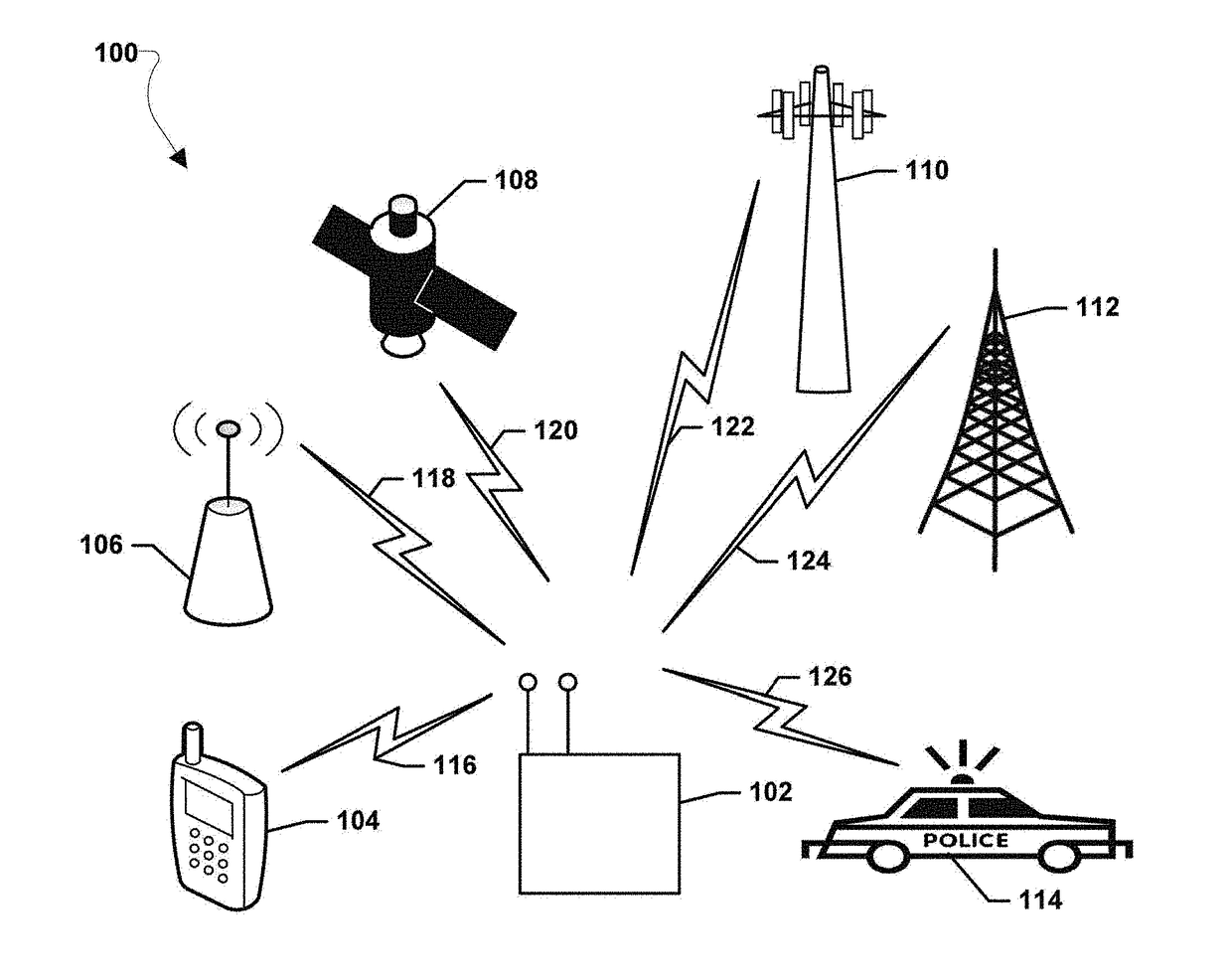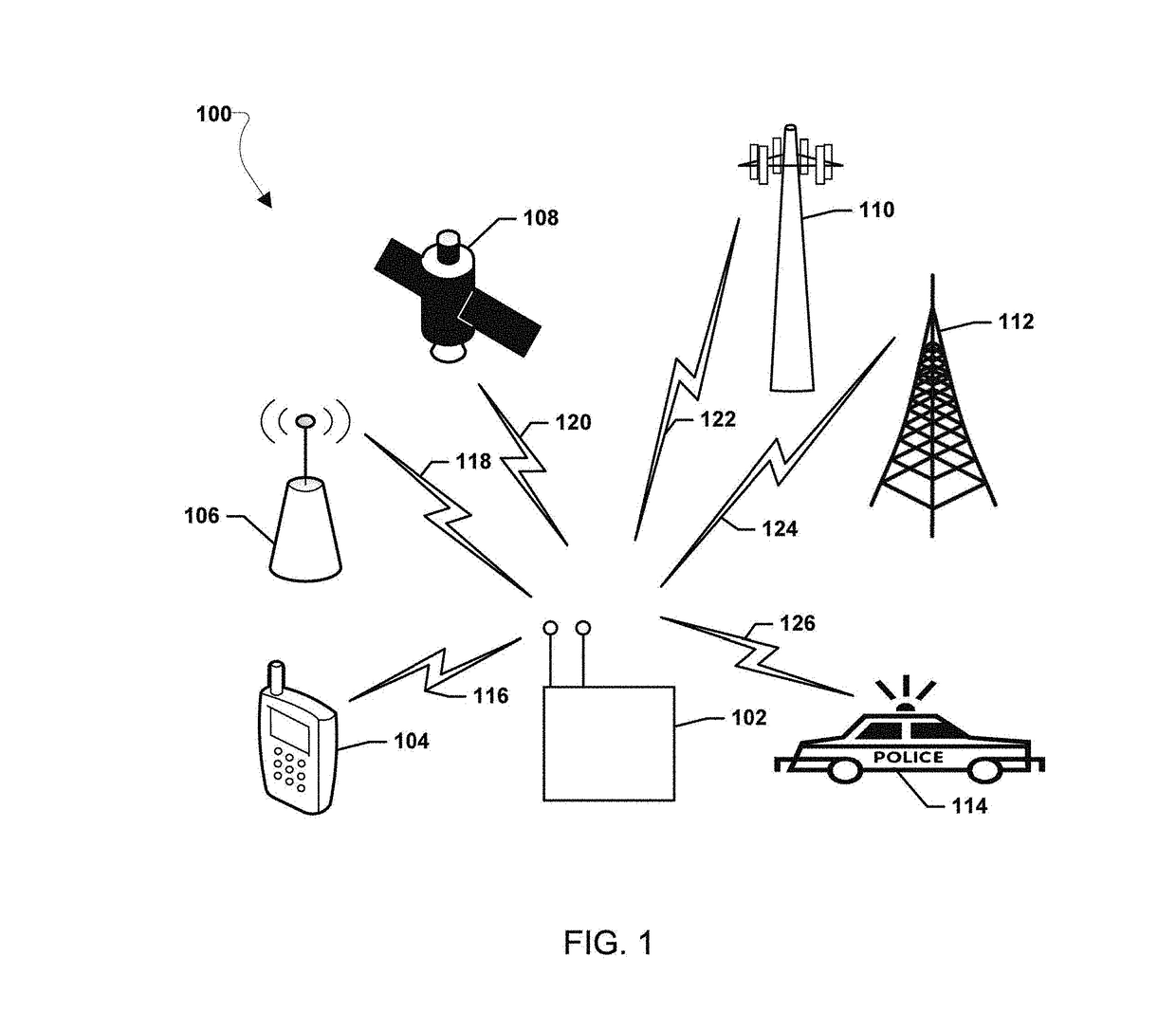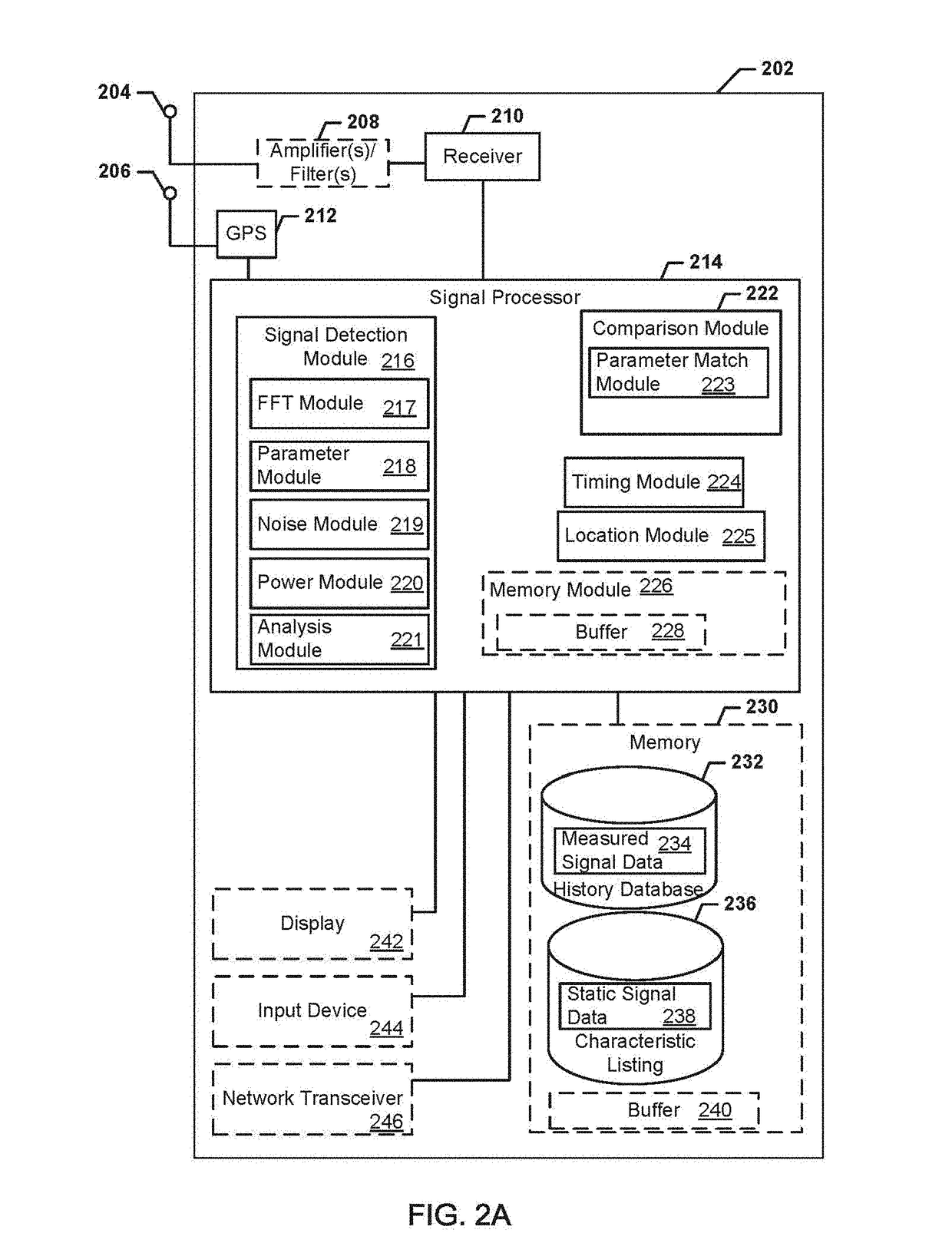Systems, methods, and devices for electronic spectrum management for identifying signal-emitting devices
a technology of electronic spectrum management and signal-emitting devices, applied in the field of automatic detection of devices, can solve the problems of increasing spectrum needs, difficult to obtain effective spectrum management, and complicated changes in software and hardware for narrowly tailored devices
- Summary
- Abstract
- Description
- Claims
- Application Information
AI Technical Summary
Benefits of technology
Problems solved by technology
Method used
Image
Examples
Embodiment Construction
[0078]Referring now to the drawings in general, the illustrations are for the purpose of describing at least one preferred embodiment and / or examples of the invention and are not intended to limit the invention thereto. Various embodiments are described in detail with reference to the accompanying drawings. Wherever possible, the same reference numbers are used throughout the drawings to refer to the same or like parts. References made to particular examples and implementations are for illustrative purposes, and are not intended to limit the scope of the invention or the claims.
[0079]The word “exemplary” is used herein to mean “serving as an example, instance, or illustration.” Any implementation described herein as “exemplary” is not necessarily to be construed as preferred or advantageous over other implementations.
[0080]The present invention provides systems, methods, and devices for spectrum analysis and management by identifying, classifying, and cataloging at least one or a mu...
PUM
 Login to View More
Login to View More Abstract
Description
Claims
Application Information
 Login to View More
Login to View More - R&D
- Intellectual Property
- Life Sciences
- Materials
- Tech Scout
- Unparalleled Data Quality
- Higher Quality Content
- 60% Fewer Hallucinations
Browse by: Latest US Patents, China's latest patents, Technical Efficacy Thesaurus, Application Domain, Technology Topic, Popular Technical Reports.
© 2025 PatSnap. All rights reserved.Legal|Privacy policy|Modern Slavery Act Transparency Statement|Sitemap|About US| Contact US: help@patsnap.com



